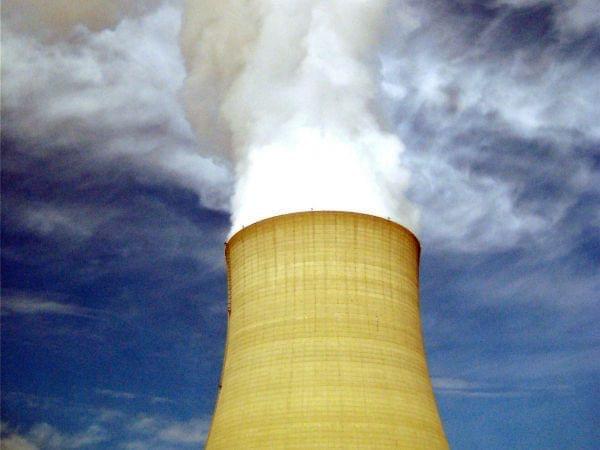Exelon: Auctions Didn’t Help Future Of Clinton Plant

In this March 16, 2011 file photo, steam escapes from Exelon Corp.'s nuclear plant in Byron, Ill. Illinois lawmakers are considering clean-energy legislation backed by Exelon Corp. to keep three unprofitable nuclear plants afloat. (AP Photo/Robert Ray, File)
Exelon Corporation says capacity auctions that benefited two of its money-losing nuclear plants aren’t any help for their nuclear plant in Clinton.
The energy company says it’s putting off for a year a decision on closing its Quad Cities and Byron nuclear plants in northern Illinois.
Both plants were included in a recent ‘Capacity Auction’, providing them with additional revenue in exchange for guaranteed generation levels. But the auction was held by a regional electric grid that doesn’t include the Clinton plant.
Exelon spokesman Neal Miller said a recent auction in the Clinton plant’s grid did help reduce losses there, but he said the plant is still at risk of closing.
Dave Lundy with the BEST Coalition said the capacity auctions should be enough to keep all of the nuclear plants running - especially with another auction planned for next spring.
“If that occurs similarly to how it occurred this year, they will be getting a cash infusion," he said. "So Exelon has often said we want market-based solutions. And we believe they’ve gotten market-based solutions. And they’ve gotten their money. And remember, this is still all ratepayer money. And it’s up to then now to move it forward.”
Lundy’s group was formed to fight Exelon-backed legislation, to provide more money for nuclear power plants in Illinois, on the grounds that they provide low-carbon energy.
Exelon officials say the bill setting up a Low Carbon Energy Portfolio Standard is the best way to ensure the survival of the three nuclear plants they say are unprofitable.
Links
- Exelon Nuclear Plants in Illinois Clear Latest Regional Grid Auction
- Legislation To Help Exelon’s Nuclear Power Plants To Be Delayed: House Energy Comm. Chair
- Exelon Threatens Plant Closures
- Low-Carbon Bill Could Help Exelon Plants, Including Clinton
- Money-Losing Quad Cities Nuclear Plant Fails To Clear Grid Capacity Auction
- Legislative Nuclear Power Deal Still In The Dark
- Mitchell Launches Petition To Keep Clinton Nuclear Plant Open
